40% of Queer Youth Considered Suicide in 2023
LGBTQ youth are more likely to experience persistent feelings of sadness and hopelessness, demonstrate suicidal ideation, and engage in riskier personal behaviors.
By John Riley on August 9, 2024 @JRileyMW

The latest annual iteration of a youth health survey finds that LGBTQ youth were more likely to suffer from poor mental health and, last year, were more likely to experience suicidal thoughts than their cisgender and heterosexual peers.
According to the Youth Risk Behavior Survey, published biennially by the Centers for Disease Control and Prevention (CDC), more than three in five LGBTQ high school students reported experiencing “persistent feelings of sadness or hopelessness,” with more than half reporting their mental health condition as “poor.”
The survey poses various questions to thousands of high school-age children, from public and private schools, between grades 9 through 12, across all 50 states and the District of Columbia. While past surveys had included data on sexual orientation, the 2023 survey was the first to include questions about respondents’ gender identities.
According to the survey, while nearly two-thirds of LGBTQ youth, or 65%, reported experiencing persistent feelings of sadness and hopelessness during the past year, compared to 31% of cisgender and heterosexual peers. More than half of LGBTQ youth reported experiencing poor mental health in the past 30 days, compared to only 21% of cisgender or heterosexual peers.
The report also found that 41% of LGBTQ youth seriously considered attempting suicide over the past year, with 20% actually attempting suicide.
“Across all of those outcomes that we looked at, experience of violence, poor mental health and suicidal thoughts and behaviors, we do see this really significant disparity between LGBTQ+ young people and their cisgender and heterosexual peers,” Dr. Kathleen Ethier, the director of the CDC’s division of adolescent and school health, told ABC News, which first reported the results. “That has been the case for a while.”
LGBTQ youth were more likely to experience violence than their peers, according to the survey. Twenty-nine percent of LGBQ+ students were bullied at school, compared to only 16% of heterosexual students. 1 in 4 LGBTQ students reported being electronically bullied over the past year, compared to 13% of heterosexual students. Additionally, LGBQ+ students almost twice as likely as their heterosexual peers to report that they had missed school in the past 30 days due to concerns for their own safety.
Even more disturbingly, LGBTQ youth were 2.5 times more likely to report being victimized by sexual violence by anyone as their heterosexual peers. LGBTQ youth were also more likely to report being forced to have sex, with 17% saying they had been victimized, compared with 6% of heterosexual youth.
LGBTQ youth are also more likely to engage in substance use than their peers. In 2023, 26% of LGBTQ students said they drank alcohol in the past 30 days, compared to 21% of cisgender and heterosexual students. Additionally, 25% of LGBTQ students reported using marijuana in the past 30 days, compared with 14% of cisgender and heterosexual students.
The report found that 18% of LGBTQ students reported having misused prescription opioids and 15% reported having used illicit drugs at some point in their lives. By comparison, only 8% of cisgender and heterosexual students said they had ever engaged in similar drug-taking behaviors. In terms of ongoing drug abuse, 7% of LGBTQ students reported misusing opioids like codeine, Vicodin, OxyContin, Hydrocodone or Percocet in the past 30 days — more than double the 3% of cisgender and heterosexual students reporting opioid misuse during that same time period.
The survey also revealed data about LGBTQ youths’ sexual behavior. While nearly identical percentages of LGBTQ youth and cisgender and heterosexual youth reported ever having engaged in sex (1 in 3) or being sexually active (about 1 in 5), a majority of the latter group reported having used a condom in sex, compared to only 44% of LGBTQ youth.
The CDC said in the report that schools that have implemented policies to support LGBTQ students have seen improved mental health outcomes and less suicidal ideation among those youth, as well as among their heterosexual and cisgender peers. Specifically, students in more welcoming environments engaged in less risky sexual behavior, decreased marijuana use, decreases in students missing school due to safety concerns, and decreases in experiences of forced sex.
“[W]e know that there are things that their schools could be doing to make them feel safer and more supported, and that when their schools do that, not only do LGBTQ+ young people do better, but their heterosexual peers do better as well,” Ethier told ABC News. “And so, we are really focused on making sure that we can do everything that we can do to get those effective policies and practices out there for schools and so that they can create better environments for those young people.”
More from Metro Weekly:
Court Allows Intentional Misgendering of Trans Students
The 6th Circuit Court of Appeals struck down an Ohio school district's anti-harassment rules on misgendering, calling them unconstitutional.
By John Riley on November 14, 2025 @JRileyMW
The 6th U.S. Circuit Court of Appeals has ruled that cisgender students may repeatedly and intentionally misgender transgender classmates, invalidating an Ohio school district's policies that sought to stop the practice.
In a 10-7 decision, the court found that Olentangy Local School District's prohibition on using "gendered language they know is contrary to the other student's identity," including pronouns and honorifics, infringes on the rights of students who believe there are only two genders.
The challenged policies include an anti-harassment rule prohibiting "discriminatory harassment" or bullying based on gender identity and other protected traits that "places a student or school employee in reasonable fear of harm," interferes with education or work, or disrupts school operations, according to The Associated Press.
Wanda Alston’s Cesar Toledo Leads with Determination and Joy
Cesar Toledo is bringing new vision, energy, and purpose to Wanda Alston's mission of serving LGBTQ homeless youth.
By John Riley on November 18, 2025 @JRileyMW
"I am my worst critic," says Cesar Toledo, executive director of the Wanda Alston Foundation. "I set really ambitious deadlines for myself, sometimes unrealistic goals, but somehow, through my tenacity and just that call to public service -- and being raised in a humble home where my mom worked three jobs to raise us -- I carry that very hard work ethic with me every day. And because of that, I've been successful in my career path."
Toledo assumed the role as head of the nonprofit dedicated to serving LGBTQ homeless youth earlier this year, succeeding longtime executive director June Crenshaw, who announced she'd be stepping down last fall.
Gay Student Sues Catholic School for Failing To Stop Bullying
The Ohio lawsuit alleges administrators failed to stop football players from harassing him on campus and off.
By John Riley on November 26, 2025 @JRileyMW
A gay former student at a Catholic high school has filed a federal lawsuit accusing administrators of ignoring relentless bullying and harassment by members of the school's storied football team.
The lawsuit, filed by a student identified as "Grandson Rudolph" and his legal guardian, "Grandmother Rudolph," alleges that administrators shielded football players from discipline, prioritizing their protection over the safety of other students, according to CBS affiliate WTRF.
Filed in U.S. District Court for the Northern District of Ohio, the suit names Ursuline High School, Assistant Principal Margaret Damore, and the Catholic Diocese of Youngstown as defendants.
Support Metro Weekly’s Journalism
These are challenging times for news organizations. And yet it’s crucial we stay active and provide vital resources and information to both our local readers and the world. So won’t you please take a moment and consider supporting Metro Weekly with a membership? For as little as $5 a month, you can help ensure Metro Weekly magazine and MetroWeekly.com remain free, viable resources as we provide the best, most diverse, culturally-resonant LGBTQ coverage in both the D.C. region and around the world. Memberships come with exclusive perks and discounts, your own personal digital delivery of each week’s magazine (and an archive), access to our Member's Lounge when it launches this fall, and exclusive members-only items like Metro Weekly Membership Mugs and Tote Bags! Check out all our membership levels here and please join us today!
The Magazine
-
Most Popular
 Seattle’s World Cup “Pride Match” Pits Two Anti-Gay Nations
Seattle’s World Cup “Pride Match” Pits Two Anti-Gay Nations  Merrily We Roll Along Review: Jonathan Groff Shines
Merrily We Roll Along Review: Jonathan Groff Shines  Five Major LGBTQ Groups Endorse Scott Wiener for Congress
Five Major LGBTQ Groups Endorse Scott Wiener for Congress  10-Year-Olds Bust Man Who Ripped Down Pride Flag
10-Year-Olds Bust Man Who Ripped Down Pride Flag  Capital Pride 2026 Moves to June 20-21, Citing Safety Concerns
Capital Pride 2026 Moves to June 20-21, Citing Safety Concerns  National LGBTQ Task Force Brings Creating Change to D.C.
National LGBTQ Task Force Brings Creating Change to D.C.  Equality PAC Endorses Erik Bottcher for Congress
Equality PAC Endorses Erik Bottcher for Congress  A Few Feet Away Review: When Grindr Becomes an Addiction
A Few Feet Away Review: When Grindr Becomes an Addiction  Sauna Review: A Gay-Trans Love Story That Falters
Sauna Review: A Gay-Trans Love Story That Falters  RuPaul’s Drag Race Season 18: Meet the New Queens
RuPaul’s Drag Race Season 18: Meet the New Queens
 10-Year-Olds Bust Man Who Ripped Down Pride Flag
10-Year-Olds Bust Man Who Ripped Down Pride Flag  Merrily We Roll Along Review: Jonathan Groff Shines
Merrily We Roll Along Review: Jonathan Groff Shines  Five Major LGBTQ Groups Endorse Scott Wiener for Congress
Five Major LGBTQ Groups Endorse Scott Wiener for Congress  Equality PAC Endorses Erik Bottcher for Congress
Equality PAC Endorses Erik Bottcher for Congress  National LGBTQ Task Force Brings Creating Change to D.C.
National LGBTQ Task Force Brings Creating Change to D.C.  Seattle’s World Cup “Pride Match” Pits Two Anti-Gay Nations
Seattle’s World Cup “Pride Match” Pits Two Anti-Gay Nations  Capital Pride 2026 Moves to June 20-21, Citing Safety Concerns
Capital Pride 2026 Moves to June 20-21, Citing Safety Concerns  Trump Administration Deadnames Rachel Levine on HHS Portrait
Trump Administration Deadnames Rachel Levine on HHS Portrait  Russia Blocks Roblox for Spreading "LGBT Propaganda"
Russia Blocks Roblox for Spreading "LGBT Propaganda"  Tenor Albert Lee on Queer Roots in ‘The Delta King’s Blues’
Tenor Albert Lee on Queer Roots in ‘The Delta King’s Blues’
Scene
Metro Weekly
Washington's LGBTQ Magazine
P.O. Box 11559
Washington, DC 20008 (202) 527-9624
About Us pageFollow Us:
· Facebook
· Twitter
· Flipboard
· YouTube
· Instagram
· RSS News | RSS SceneArchives
Copyright ©2025 Jansi LLC.








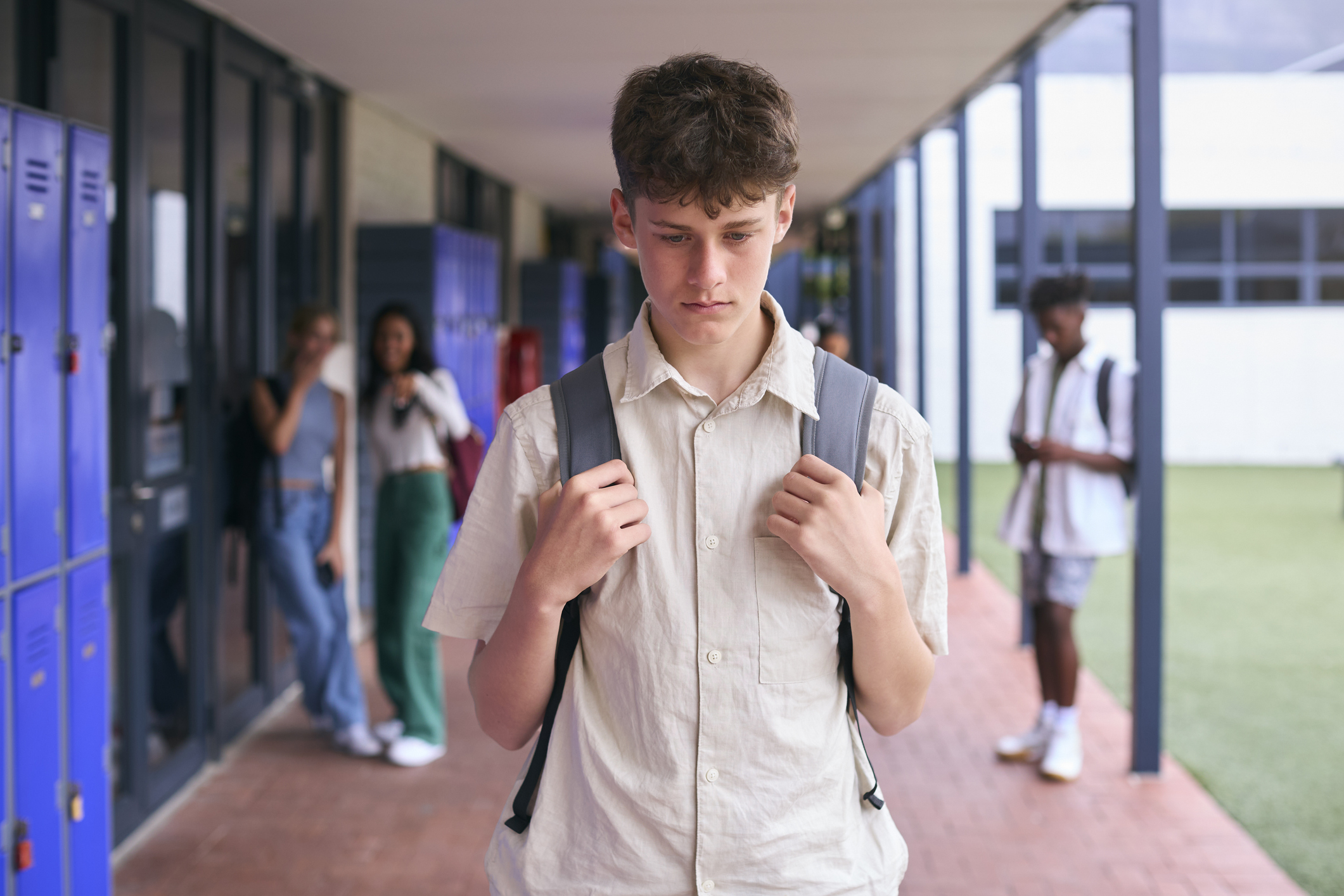
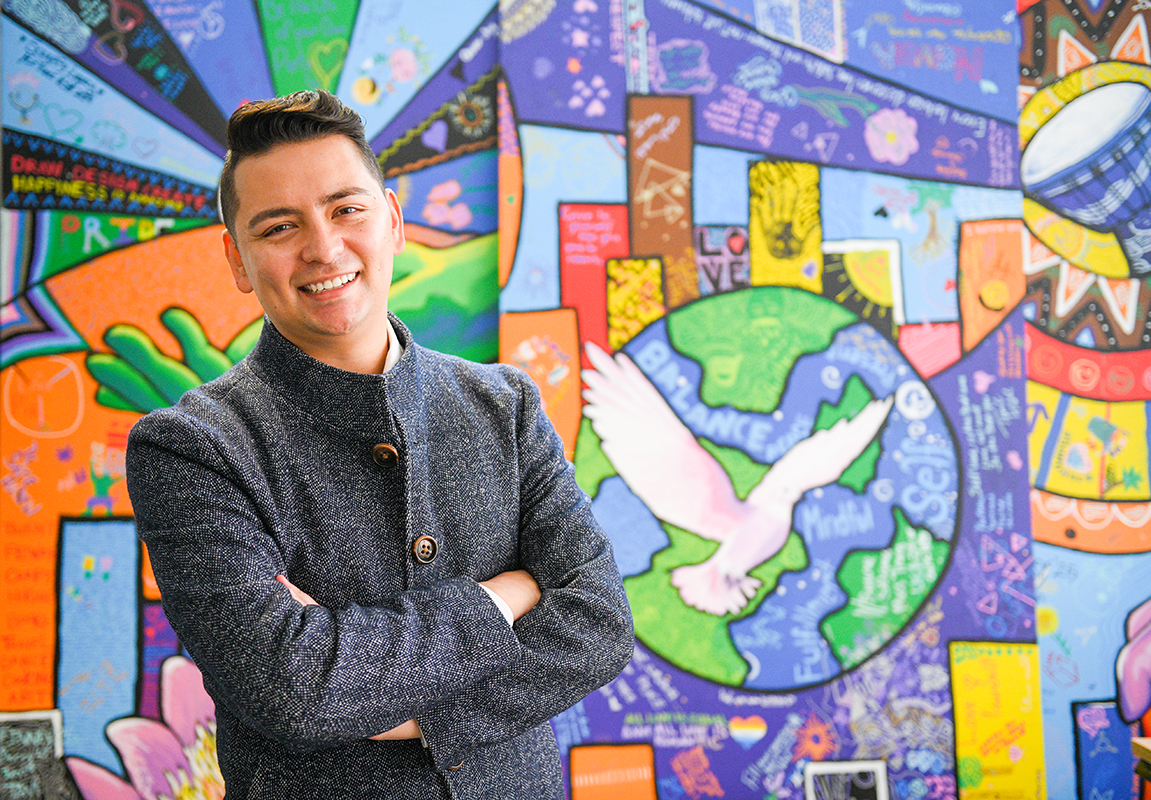
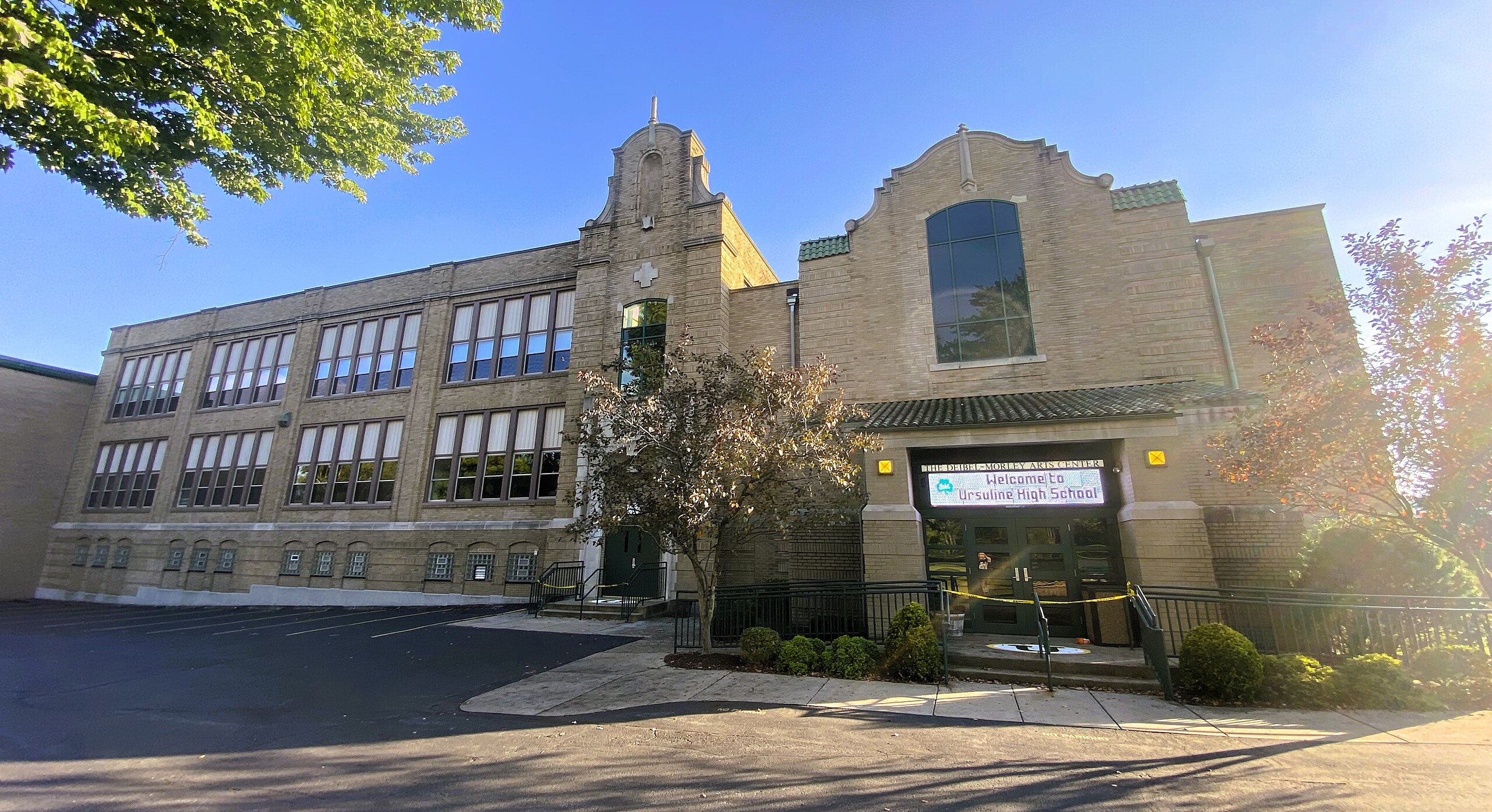
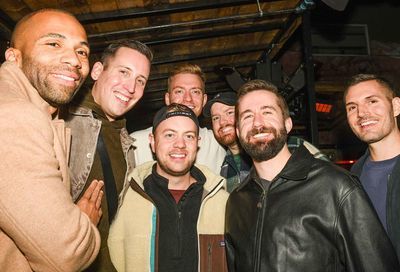

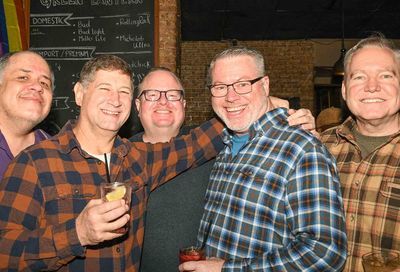
You must be logged in to post a comment.